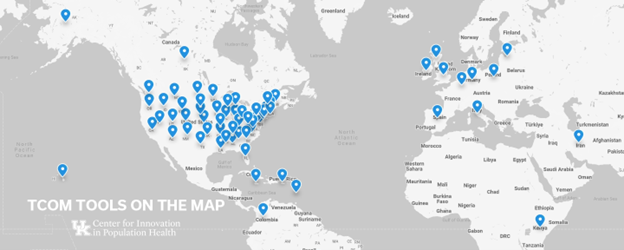Population Health is the science of protecting and improving the health of people and their communities with a specific focus on social determinants of health. The vision of IPH is to identify and support innovative approaches, convene faculty from across the University of Kentucky also, and seek national and international collaboration. Faculty of the IPH Center already lead one international collaborative and two national partnerships.
About Us
The definition of health has been shifting away from an exclusive focus on medical and physical conditions to include well-being as a critical component. The World Health Organization (WHO) has defined health as "a state of complete physical, mental, and social well-being and not merely the absence of disease or infirmity.” Research on the critical role of the social determinants of health makes it clear that understanding and promoting individual and community health requires a comprehensive understanding of the individual in their environment and community. The IPH Center focuses on two specific innovations.
Our first innovation focuses on broadening the definition of health to include well-being in standard public care practices. A good deal of our focus has been on children at high risk for poor health (and life) outcomes because of challenging social circumstances. Recognizing that the health of these vulnerable children is driven by far more than traditional medical care, national leaders have been calling for child welfare to be understood through a public health lens, with an emphasis on the broader social determinants of health. The IPH Center is well-positioned to lead that national movement. We have developed a unique assessment instrument that allows multiple providers and partners to identify and prioritize service needs for children and adolescents. Currently, all 50 states use our approach (called the Child and Adolescent Needs and Strengths, or CANS) to conduct periodic assessments of disadvantaged children, tailoring care delivery to support optimal health outcomes. The CANS is the most commonly used person-centered assessment for children and youth, with demonstrated validity and reliability. We believe the reason for its widespread use is its ‘communimetric’ design. Rethinking measurement as communication is an important component of our strategy to add the consideration of social determinants and well-being indicators to large administrative datasets.
Our second innovation is to build on the person-centered assessments we have developed to drive person-centered population health research. Health services research, and particularly mental health services research, has historically been heavily focused on service delivery. Large convenience data sets (such as claims or discharge data) have limited person-centered information but contain copious information about service use and costs of care. This has created a body of research with an emphasis on the healthcare system rather than the people that the system is intended to serve. Our approach has generated reliable and valid data on millions of children and families who have sought care. Leveraging these data, we are now working to create data reservoirs that include CANS assessments, along with additional service delivery and outcomes data; this will serve as a platform for predictive analytics to identify which service “packages” work best for specific child needs/strengths profiles. We currently have more than 700,000 unique individuals represented in the reservoir, with commitments from more than 20 additional states to contribute. We think it is reasonable that, in the first year, the Center’s reservoir will contain information on more than 5 million people.
Our goal is to extend the reach of person-centered population health research to other populations and care settings. The pursuit of this goal requires a fundamental shift in how practitioners view and utilize documentation processes. One reason health services researchers often loathe using ‘clinical’ information is that they simply do not trust its accuracy—its reliability and validity. Historically, substantial research has supported this position. To address the reliability of person-specific information, a sophisticated and comprehensive set of strategies are required for a paradigm change in health policy research, we have created a large-scale international collaborative led by core faculty in the IPH Center, who facilitate the implementation and full use of our reliable and valid assessment of the characteristics of people receiving care. The work of the IPH Center will provide a critical foundation for innovation in population health. Without this necessary and foundational work, we cannot hope to evolve sophisticated population-based public health research that is informed by the needs and strengths of the populations to be served.
